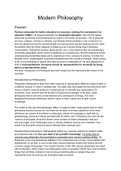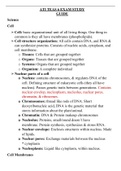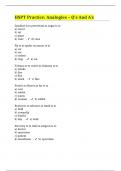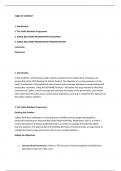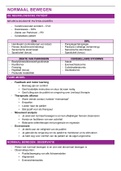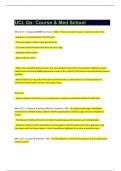Samenvatting
Samenvatting Modern Philosophy
- Instelling
- Vrije Universiteit Amsterdam (VU)
This is a summary of 's course of Modern Philosophy. this course went through "modern philosophers" in a reverse order so that we (the students) would see how they are related much easier. Maybe this summary could help in this too. It contains summaries on texts by Marx, Mill, Hegel, Kant, Rousseau...
[Meer zien]
